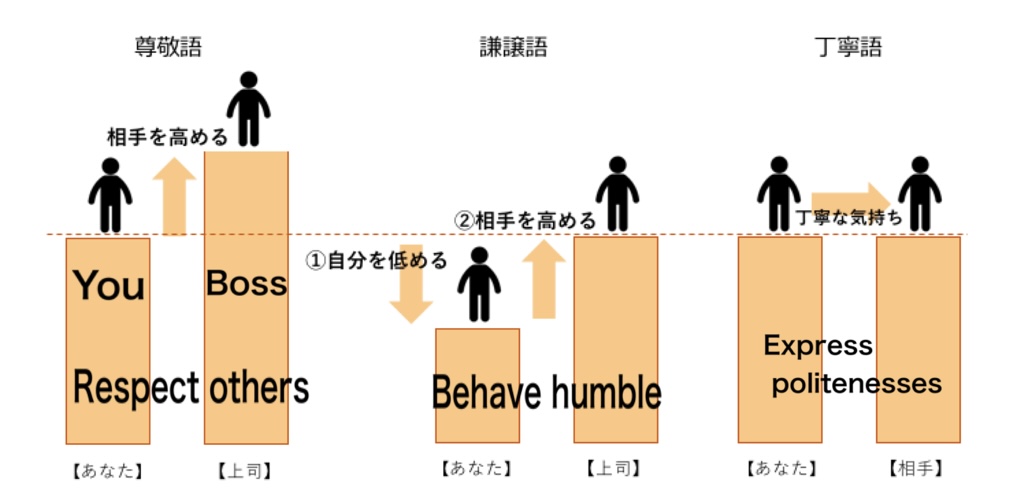I understand that 謙譲語 is used when the subject is the speaker (myself) but does it sound too much for example during a 自己紹介 in a sentence like: 「一年間東京に留学いたしました」? Also because it is an interview for a researcher position I will have to talk about my project and I'm not sure about expressions like "考えられる/言える/思われるでしょう". How do they change in 謙譲語? Also a sentences like: 「仏教的な観点から分析することでございます」 Would it be correct?
2 Answers
- In my opinion, 留学いたしました and 留学しました are both okay in a self-introduction. The former may be preferred in some companies, but from my experience, a boss in a research facility tends not to expect you to use stiff humble language like this. YMMV.
- If you are in doubt, don't use ~でございます, and stick to ~です. ございます is still used at some classy hotels and restaurants (as well as fantasy manga and such), but it is usually an overkill in a job interview. But having one or two ございます wouldn't hurt if your Japanese is fluent enough.
- An expression of 自発 like 考えられます/思われます does not have a humble version. It's already indirect enough because the existence of the "thinker" is obscure in this form. To introduce an already accepted idea in your field, you can safely say ~であると考えられます ("It is believed that ~"). Even when you want to express your own opinion, ~であると考えます ("I believe/think ~") is enough in an academic context. There are humble versions of 思います/考えます (推察いたします, 存じます, 愚考します, etc.), but these are mainly for respectful business letters, not academic talks.
留学いたしました is little bit too formal for a speech I think. 留学しました is the best for speech because former one which is using 謙譲語 style word is mainly used for the situation to introduce yourself to the people who are high status or when you write formal letter. Ex,to your boss or president. Most of Japanese people usually use these type of word not to make rudeness against these high status people.But we are using latter one just for behave politely as an adult person or as common sense. So if you want to use these word for self-introduction speech,latter one is more adequate. 考えられる 思われる these type of word are used for avoiding responsibility when your opinion or hypothesis turn out to wrong. And these words can be used for 自発. This grammar is difficult even for Japanese native speaker. You can only see these words in novel. Here is a example sentence. 彼女と会うと、夏の記憶が自然と思い出される。
(When I meet with her,I recall the memories of summer spontaneously.)
The important point is “not intentionally” but “spontaneously” This type of grammar often used for 思う. It can be used for 考える but it is little bit rarer than former one. And when you find “自然と” (definition: by nature or spontaneously)this word before verb, you should suspect that this case might be 自発. And there are no 謙譲語 for these words. You can used 丁寧語 instead of these words for speech. 丁寧語 is much enough I think me personally. And hopefully,this picture helps you to understand 敬語 Keigo deeply.
